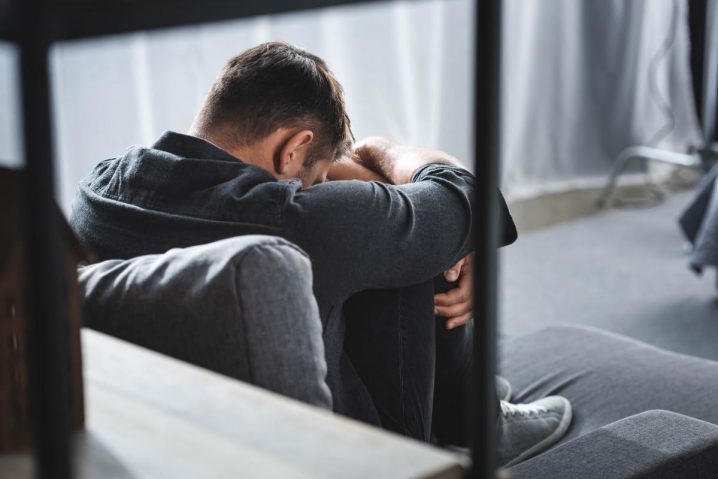Most recovering addicts, especially those who attend the 12-step program, are pretty familiar with the concept of powerlessness. But, how do you define powerless in addiction? After all, helplessness isn’t a concept that solely applies to addiction, although it might be the first step to recovery and sobriety. Addiction treatment centers discuss the concept of powerlessness in therapy to help people recover.
If you are seeking group therapy programs in Florida for yourself or a loved one, reach out to Lighthouse Recovery Institute today at 866.308.2090.
What Does It Mean to Be Powerless?
According to the Merriam-Webster Dictionary, the definition of powerless is: “devoid of strength or resources and lacking the authority or capacity to act.” Similarly, if you look for the definition of powerlessness in the Oxford English Dictionary, it says: “lack of ability, influence, or power.”
They don’t talk about how that connects to drug addiction, but one can instantly see the relationship without a proper definition.
What’s the Difference Between Powerlessness and Unmanageability?
These two words have an essential significance in the world of Alcoholics Anonymous. In their writings, they say: “We admitted we were powerless over alcohol — that our lives had become unmanageable.” That’s the premise for the first step of the program. But, while they sound similar on the surface, these concepts are very different.
Admitting powerlessness means we can’t control our substance abuse. We might be able to stave off our abuse from time to time, but we start drinking or using drugs again sooner than later. As the definition says, we lack the authority or capacity to stop.
On the other hand, unmanageability tends to arise from our powerless behavior. Let’s break down the word. The Merrian-Webster Dictionary defines the word managed as: “to achieve one’s purpose and to work upon or try to alter for a purpose.”
Unmanageability means you don’t have the self-will or the tools to take control of the triggers around you. Thus, life eventually becomes unmanageable. At this point, it is time for intervention and professional help if you want to regain control of your life.
The Definition of Powerless in NA and AA
Most 12-step programs start with admitting powerlessness. The entire idea of recovery and sobriety begins here. For example, alcoholics Anonymous programs say that those who still believe they have control over their drinking will drink again. Only when you surrender control will you be on your way to mastering step one of the 12 steps.
However, don’t let this define you. When you start your path in recovery, you’re likely to find that your life is a bit unmanageable. Please don’t feel the need to surrender when you begin; this is an ongoing process, and it might take time to cope with everything that’s happening.
Examples of Powerlessness in Sobriety
When you decide to start working on the steps of AA, the first one is to surrender to powerlessness. But when you don’t know how to define powerlessness or truly understand what it is, it can be a bit challenging. So, here are some examples of powerlessness in sobriety to consider:
- Accepting you don’t have control over drinking, even after a long time without use
- Understanding that despite your efforts, your life has become unmanageable unless you seek help
- Recognizing and admitting the consequences of your past actions
- Identifying the ways substance use has made you powerless over your actions
- Acknowledging that you struggle with an insufficiency sense of control that causes you shame or guilt
- Understanding that right now, you’re incapable of identifying the barriers to achieving sobriety
- Accepting that you don’t know to manage the situation
- Struggling with anxiety and frustration about your inability to perform previous activities without drugs or alcohol
The Value of Powerlessness
Stop linking powerless to mental health weakness. The value of powerlessness is defining the problem. Unmanageability describes how that problem has affected your life. When we become helpless to unmanaged family, work, finances, health, or relationships, we experience a real sense of powerlessness.
Here’s an exercise that can show you the value of being powerless. Sit down and write things you cannot change. For example, other people’s actions, the reality of addiction, the past, other people’s emotions, and the list goes on.
Regardless of what your addiction recovery journey looks like, finding serenity within powerlessness is all about: accepting reality and believing in what could be. This can help you stay clean and sober in the long run.
Take Control of Addiction
If you or someone you love struggles to manage their drug and alcohol addiction, it is vital to seek drug addiction treatment. Our comprehensive treatment programs and addiction specialists at Lighthouse Recovery Institute can help you find the right path to recovery.
Whether your journey starts with drug rehab, a full-time recovery program, or 12-step meetings, our therapists will look at your unique needs and offer solutions that give you back power and control over your life. Contact us today at 866.308.2090 to learn more about our addiction treatment programs and your options.





